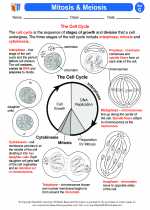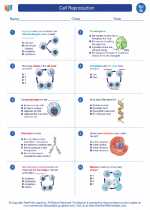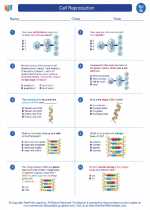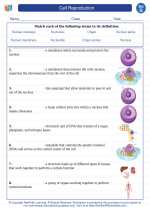Cell Reproduction -> endocrine system
Endocrine System
The endocrine system is a complex network of glands and organs that produce, store, and secrete hormones. These hormones are chemical messengers that regulate various bodily functions, including growth, metabolism, sexual function, and mood. The endocrine system works in coordination with the nervous system to maintain homeostasis and regulate the body's internal environment.
Key Components of the Endocrine System
- Hypothalamus: Located in the brain, the hypothalamus serves as the link between the endocrine and nervous systems. It produces releasing and inhibiting hormones that control the secretion of hormones from the pituitary gland.
- Pituitary Gland: Often referred to as the "master gland," the pituitary gland produces and secretes a variety of hormones that regulate other endocrine glands, growth, and various bodily functions.
- Thyroid Gland: Located in the neck, the thyroid gland produces hormones that regulate metabolism, growth, and the body's sensitivity to other hormones.
- Adrenal Glands: Situated on top of the kidneys, the adrenal glands produce hormones such as cortisol and adrenaline, which are involved in stress response, metabolism, and immune function.
- Pancreas: The pancreas produces insulin and glucagon, hormones that regulate blood sugar levels and energy metabolism.
- Reproductive Glands: The testes in males and ovaries in females produce sex hormones such as testosterone and estrogen, which influence sexual development and reproductive function.
Functions of the Endocrine System
The endocrine system plays a crucial role in regulating various bodily functions, including:
- Regulating metabolism and energy production
- Controlling growth and development
- Maintaining electrolyte and fluid balance
- Regulating reproductive processes
- Modulating responses to stress
- Regulating blood sugar levels
Disorders of the Endocrine System
Imbalances or dysfunctions within the endocrine system can lead to various disorders, such as:
- Diabetes mellitus
- Thyroid disorders (e.g., hypothyroidism, hyperthyroidism)
- Adrenal insufficiency
- Polycystic ovary syndrome (PCOS)
- Growth hormone disorders
- Menstrual irregularities
Study Guide
To effectively study the endocrine system, consider the following key points:
- Understand the roles and functions of the major endocrine glands and their associated hormones.
- Learn about the feedback mechanisms that regulate hormone secretion and maintain homeostasis within the body.
- Explore the interconnectedness of the endocrine system with other bodily systems, such as the nervous system and immune system.
- Review common endocrine disorders and their symptoms, causes, and potential treatment options.
- Utilize diagrams and visual aids to understand the anatomical locations of the endocrine glands and their relationships with other organs.
By mastering the intricacies of the endocrine system, you will gain a deeper understanding of how hormones influence various physiological processes and contribute to overall health and well-being.
[Endocrine System] Related Worksheets and Study Guides:
.◂Science Worksheets and Study Guides Seventh Grade. Cell Reproduction

 Activity Lesson
Activity Lesson
 Worksheet/Answer key
Worksheet/Answer key
 Worksheet/Answer key
Worksheet/Answer key
 Worksheet/Answer key
Worksheet/Answer key
 Vocabulary/Answer key
Vocabulary/Answer key
 Vocabulary/Answer key
Vocabulary/Answer key
 Vocabulary/Answer key
Vocabulary/Answer key
 Vocabulary/Answer key
Vocabulary/Answer key
 Vocabulary/Answer key
Vocabulary/Answer key
 Vocabulary/Answer key
Vocabulary/Answer key
 Vocabulary/Answer key
Vocabulary/Answer key
 Vocabulary/Answer key
Vocabulary/Answer key
